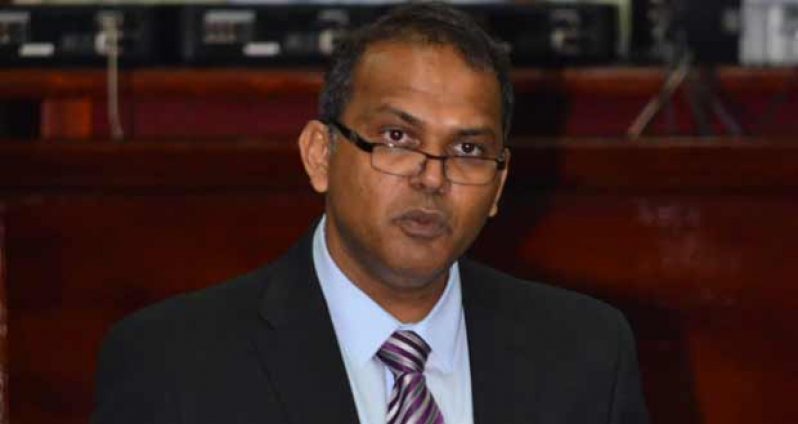Minister of Culture Youth and Sport, Dr. Frank Anthony yesterday reiterated the call for a National Reparations Committee, as he addressed questions raised by A Partnership for National Unity (APNU) MP Vanessa Kissoon, who had queried the establishment of the Reparations Committee of Guyana.
And Dr. Anthony underscored this position by referring to former President Bharrat Jagdeo’s address in 2011 at the launching of the celebratory activities marking the Year of People of African Descent, who had said: “The international community was quick to recognise the Jewish holocaust, rightfully so. They must also now recognise that there was an African holocaust.”
Support for reparations in Guyana, according to Dr. Anthony, was reflected by President Donald Ramotar, who in 2013 launched the United Nations Educational, Scientific and Cultural Organization (UNESCO) Slavery Museum in Guyana in recognition of the 250th anniversary of the 1763 Berbice Rebellion.
He recalled that it was President Ramotar in 2013, who had ordered the establishment of a National Reparations Committee to collaborate with regional bodies in advancing the case for regional reparations.
The Culture Minister also noted that the National Reparations Committee was formed in February 2014, modelled after the Jamaica Reparations Committee after its five-year record of being well represented.
Anthony reiterated the sentiments of the then President Jagdeo who had declared, while addressing a commemorative ceremony for the bicentenary of the abolition of the transatlantic trade in captive Africans, that the condemnation of slavery by metropole nations had been “mere lip service”.
Jagdeo had demanded that some members of the international community, in recognising their active role in this despicable system, should move one step forward to further support the call for reparations.
The Minister of Culture noted that the then President had supported the call made by Guyana’s African Cultural and Development Association (ACDA), by urging the Government sponsorship of a resolution in parliament which was similar to that of Jamaica.
Minister Anthony observed that the inclusivity of the Committee is guaranteed by its membership comprising a wide cross-section of Guyanese society including Pan African Groups, the Rastafarian Community, Historians, the Indigenous Community, the Christian Community, Youth Organisations, Gender Representatives, the Legal Fraternity, an Economist and Social Scientists.
The terms of reference of the national Reparations Committee include the development and implementation of a national strategy to pursue reparations through the development and recommendation of diplomatic strategies to multilateral institutions, namely the United Nations (UN), African Union (AU), and the Community of Caribbean and Latin American States (CELAC), with key focus on other supportive governments.
The Committee will further address the economic, social, cultural and psychological and educational residues of the slavery system on indigenous descendants, as well as descendants of former enslaved Africans.
Anthony said, however, that the national Reparations Committee has made no formal representation to the CARICOM Reparations Commission, but instead is expected to present the Guyana Case for Reparations in June 2014.
(By Derwayne Wills)





.jpg)








